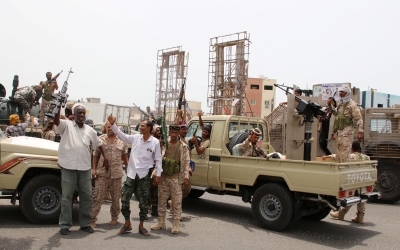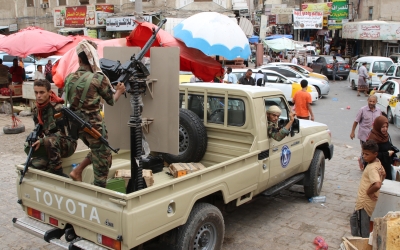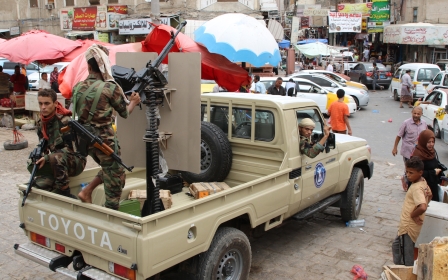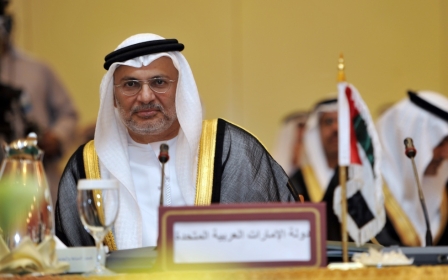Yemen's pro-government coalition fractures as separatists grab control in Aden
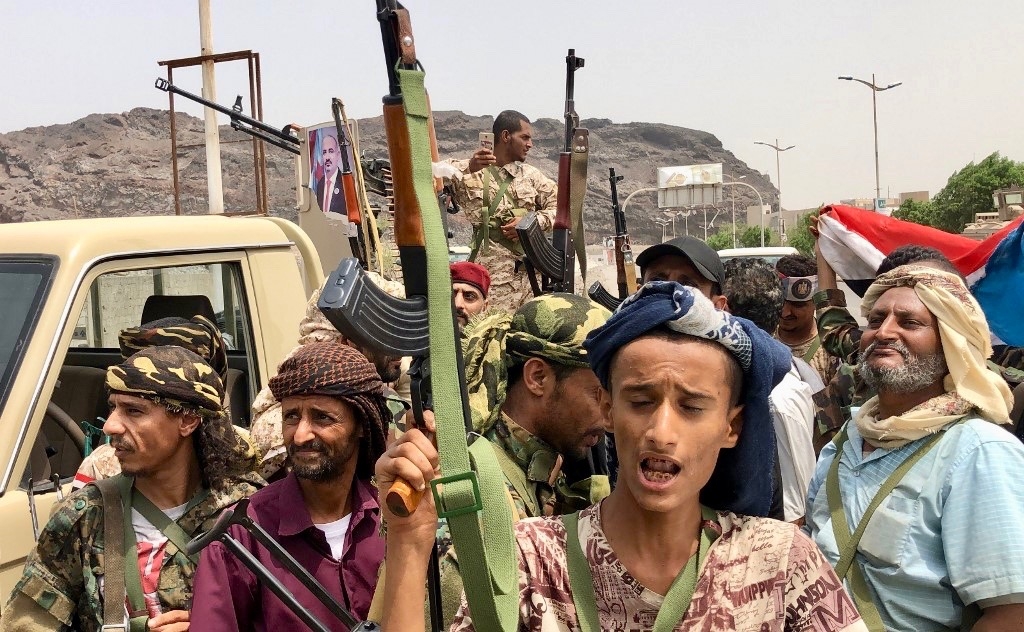
Yemen's southern separatists have taken control of Aden, seat of the internationally recognised government, fracturing the Saudi-led coalition that is trying to break the grip of the Houthi rebel movement on the country.
The coalition late on Saturday threatened military action to halt the fighting and ordered the separatists to withdraw from pro-government military camps they seized in the southern port city. Riyadh called for an emergency summit to restore order, Reuters reported.
The Saudi-backed government of President Abd Rabbuh Mansour Hadi earlier called the move by the Southern Transitional Council (STC), which is backed by the coalition member the United Arab Emirates, a coup.
The UAE-backed separatists are seeking to restore south Yemen as an independent state as it was from 1967-1990, AFP said. Although the separatists have a rival agenda to Hadi's government, they have been part of the Saudi-led coalition that intervened in Yemen in 2015 against the Houthis after they ousted Hadi from power in the capital Sanaa in late 2014.
New MEE newsletter: Jerusalem Dispatch
Sign up to get the latest insights and analysis on Israel-Palestine, alongside Turkey Unpacked and other MEE newsletters
While the UAE is a key member of the coalition, its relations with Hadi have been tense amid allegations the Emiratis have offered patronage to southern Yemeni politicians campaigning for secession, the Associated Press reported.
Saudi-led coalition spokesman Turki al-Malki said in a statement: "We call on all components and military formations of the (STC) to immediately return to their positions and withdraw from the positions that have been seized."
The coalition ordered an immediate ceasefire as of 1am local time on Sunday, he said, and would use military force against those who violate it.
The STC agreed to the ceasefire. "The spokesman of the Southern Transitional Council confirmed its adherence to the ceasefire called for by the leadership of the Saudi-led coalition," the council said in a statement.
The violence in Aden has complicated the United Nations' efforts to end a four-year war that has killed tens of thousands and pushed the poorest Arabian Peninsula nation to the brink of famine.
Four days of clashes between the separatists and pro-government forces have killed at least nine civilians and more than 20 combatants, medical sources said. The fighting has trapped civilians in their homes with dwindling water supplies.
An STC official told Reuters the separatists were in talks to peacefully take over the all-but-empty presidential palace in the predominantly residential Crater district after a military official earlier said it had been seized.
The separatists have moved into the interior minister's house after he was evacuated by coalition forces, officials said. President Hadi is currently based in the Saudi capital Riyadh.
Saudi Arabia's Vice Minister of Defence Khalid bin Salman called on parties in Aden to let prudence and dialogue prevail and unify ranks against the Houthis.
"We reject any use of arms in Aden and disturbing the security and stability, and we call for restraint. Therefore, the Kingdom called for a political dialogue with the legitimate Yemeni government in Jeddah," he said in a tweet.
The UAE, which has armed and trained thousands of southern separatist fighters, earlier called for calm and unity. Its foreign minister urged UN envoy Martin Griffiths, who is trying to de-escalate tensions across Yemen, to help as well.
The clashes began on Wednesday after the separatists accused an Islamist party allied to Hadi of complicity in a missile attack on a southern forces military parade in Aden, which was claimed by the Houthis.
Analysts say the Houthis may have used the attack to test dynamics on the ground after the UAE in June scaled down its presence under pressure from western allies to end the war and concerns about rising tensions with Iran in the Gulf.
The separatists' move against Hadi could weaken the coalition's hand in any negotiations with the Houthis.
"It's good news for the Houthis and really bad news for the Saudis. ... It ends the exclusivity of the Houthis being the coup against Hadi," Farea al-Muslimi, associate fellow at Chatham House, told Reuters.
The Houthis said the Aden fighting proved that Hadi's government, which holds Aden and a string of western coastal towns, was unfit to rule.
"It is time for the main powers on the ground to hold serious and constructive talks to take Yemen towards a federation that appeases all sides under a united national framework," the group's deputy foreign minister, Hussein al-Azzi, tweeted.
The United Nations is trying to implement a stalled peace deal in the main port city of Hodeidah, farther to the north, to pave the way for wider political negotiations to end the war.
The Houthis, who control Sanaa, Hodeidah and other urban centres, have stepped up missile and drone attacks on Saudi cities, further escalating tensions.
Middle East Eye delivers independent and unrivalled coverage and analysis of the Middle East, North Africa and beyond. To learn more about republishing this content and the associated fees, please fill out this form. More about MEE can be found here.


